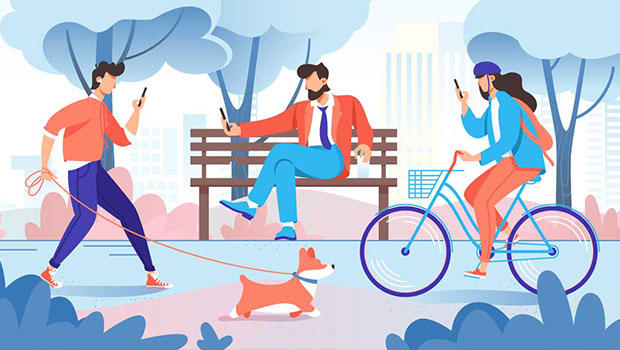APHL to build national COVID-19 server using Apple and Google's API, hosted by Microsoft

What you need to know
- The Association of Public Health Laboratories has announced an ambitious new project.
- It says it plans to build a national exposure notification server to securely hold data.
- It will use Apple and Google's API and be hosted by Microsoft.
The Association of Public Health Laboratories has announced an ambitious new plan to build a national COVID-19 exposure notification server, which will run securely on Apple and Google's API and be hosted by Microsoft.
In a blog post yesterday the association stated:
To limit the spread of COVID-19, information must travel faster than the virus can. The scope and transmission rate of COVID-19 makes this a monumental challenge for public health agencies. Exposure notification technology, however, is a potential game changer. By providing rapid alerts to individuals who may have been in close proximity to someone who has COVID-19, exposure notifications allow the spread of information to stay one step ahead.
The APHL says that it is "taking a major step to support public health agencies that want to provide focused, privacy-preserving, and user-controlled exposure notifications at scale using the Apple | Google Exposure Notifications System." It says its presence on the project will give the US public health community "a capable and accountable partner for hosting key components of this groundbreaking technology."
FAQ: What is the Google-Apple COVID-19 (coronavirus) Exposure Notifications system?
The APHL will take advantage of Apple and Google's secure, anonymous exposure notification system:
Rather than each state and territorial public health agency bearing the burden of building and hosting its own key servers, a national server can securely host the keys of those affected users, eliminate duplication and enable notifications across state borders. APHL is also championing the effort to build and host a national key server on behalf of the public health community. This will allow users to continually benefit from exposure notifications as they travel across state lines, and help state and territorial agencies deploy their apps quickly.
By hosting the keys of those who have received exposure notifications nationally, the system can eliminate duplication and allow for notifications across state borders, a severe limitation of creating apps at the state level.
Microsoft will support the group by hosting a server, based on an open-source reference design created by Google Cloud:
Master your iPhone in minutes
iMore offers spot-on advice and guidance from our team of experts, with decades of Apple device experience to lean on. Learn more with iMore!
Through Microsoft's Azure cloud platform, Microsoft will provide cloud services that will allow APHL to host the key server and securely enable interstate operability for the apps that public health agencies deploy.
As with current exposure notification alerts, only users who download an app from a public health agency, and voluntarily opt-in can receive notifications.
APHL president Bill Whitmar said:
"We're honored to partner with Apple, Google and Microsoft to make this groundbreaking technology accessible to state and territorial public health agencies. Apps using this technology will rapidly inform users of a potential exposure to COVID-19 and provide them information they can use to protect themselves and their families."

Stephen Warwick has written about Apple for five years at iMore and previously elsewhere. He covers all of iMore's latest breaking news regarding all of Apple's products and services, both hardware and software. Stephen has interviewed industry experts in a range of fields including finance, litigation, security, and more. He also specializes in curating and reviewing audio hardware and has experience beyond journalism in sound engineering, production, and design. Before becoming a writer Stephen studied Ancient History at University and also worked at Apple for more than two years. Stephen is also a host on the iMore show, a weekly podcast recorded live that discusses the latest in breaking Apple news, as well as featuring fun trivia about all things Apple. Follow him on Twitter @stephenwarwick9
